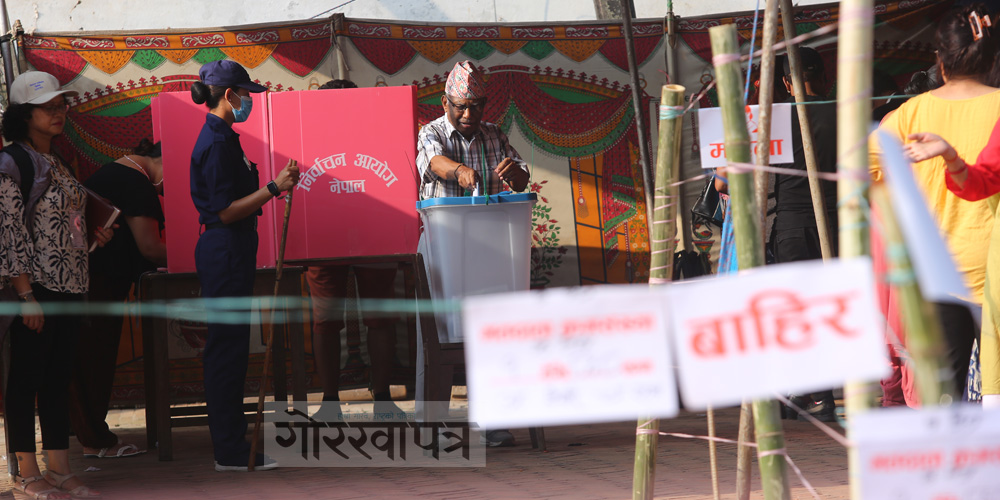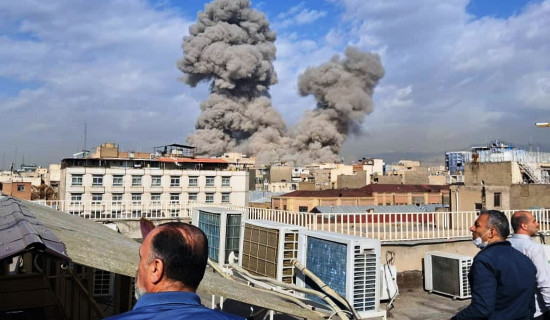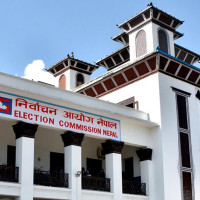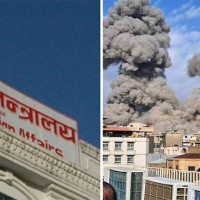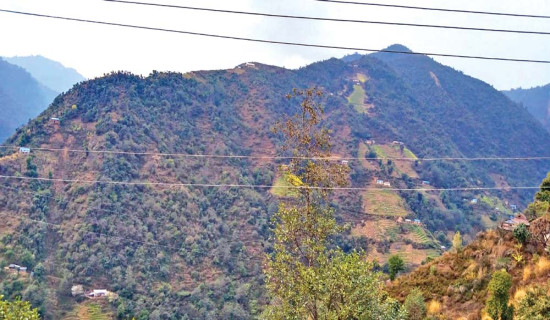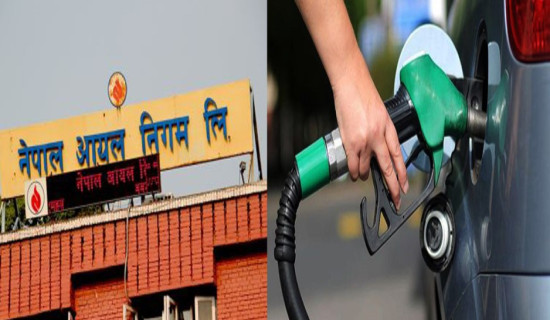- Sunday, 1 March 2026
Nation Goes To Polls Today, Strengthening Democracy At Grassroots
Narayan Upadhyay
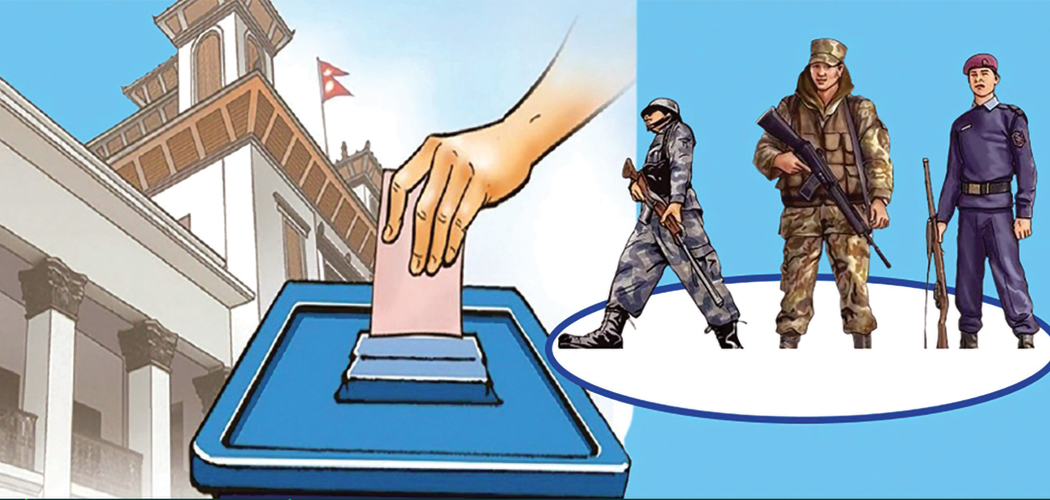
Hallmark of Democracy
Electing representatives through periodic polls is truly a hallmark of our democracy. Local polls help locals realise and retain their rights through their elected delegates, who must serve for locals' welfare once they are chosen through secret ballots.
The local deputies are the ones who are close to residents, localities and provinces and are the ones who perceive better about local troubles and situations and can perform adequately to resolve them for the betterment of locals and their areas. They can efficiently accelerate development projects and welfare programmes as per requirements. With the government dispatching increased budget amounts to local units that include six metropolises, 11 sub-metropolises, 276 municipalities and 460 rural municipalities, the local representatives have had an excellent opportunity to deliver on their promises.
With the expanding presence of online and social media networks, residents have become more conscious about rights and measures that local governments should follow to improve the lives of locals. Alert voters this time around will unequivocally weigh the capabilities of candidates before casting votes. As such, the outcome of polls would likely differ from the results of previous local elections held five years ago.
With the slogan, 'Taking Singha Durbar's Authority and Power to Every Village,' which stands for the devolution of central power to local bodies, taking effect, the emphasis on electing the right candidates to local bodies has gone up. An increased budget for every local unit means elected representatives can supervise many development projects at their respective localities. Those willing to serve their localities can find this an opportunity to guide their local unit towards prosperity. This is the reason that the attraction for competing in the local election has intensified among the individuals representing political parties and independents.
Many Contestants
We can figure out the widening interest in local bodies from the fact that about 153,000 aspirants have filed their nominations to compete for 35,221 seats during this poll. The contestants can win 293 seats each slated for mayoral and deputy mayoral posts in metropolises, sub metropolises and municipalities and 460 seats each for rural municipality chairpersons and deputy chairs. Seats for contestants vying for ward chairperson positions at all local units are 6743 and for ward members are 26,972. The candidates contesting for mayoral posts in metropolises, sub-metropolises and municipalities stand at about 3,500 and chairpersons of rural municipalities at 3,400.
Likewise, about 2,175 aspirants registered nominations for deputy mayoral posts and 2,407 for deputy chairperson seats. The number of candidates competing for ward chair positions is about 35,380 while the number of women vying for different posts is 35, 221 seats in 573 local bodies. Among women, the number of Dalit women competing in various positions stands at about 23950. Meanwhile, about 55765 are vying for the ward member posts. Of the contestants who filed nominations for different seats, about 4000 withdrew their candidacies. To cast votes, the EC has printed 20,746,000 ballot papers which have now reached every polling centre.
According to the Election Commission, 17,733,327 voters, including 8,992,010 males and 8,741,530 females, as well as 183 others, will cast ballots at 21, 995 polling booths in all 753 local bodies in 77 districts comprising seven provinces to choose mayors of metropolises, sub-metropolises and municipalities, chairpersons at rural municipalities, ward chairpersons and ward members.
Interesting Battles
Major political parties - the Nepali Congress, the UML, Maoist Centre, NCP (Unified-Socialist), Janata Samajbadi Party, RPP as well Sajha Bibekshil are the key contenders that are eyeing grabbing as many seats as they can. Of 79 political parties registered at the EC, 66 parties have fielded their candidates in different positions.
Of all parties, the UML has fielded more candidates, while the Nepali Congress is second in terms of the number of candidates contesting.
This time around, the five-party ruling alliance comprising the NC, Maoist Centre, Unified Socialist, JSP and Rastriya Janamorcha, is contesting the elections by making seat arrangements. Candidates fielded by the alliance will have backing from these parties and appear to have an upper hand, as supporters of each coalition colleague will endorse the coalition's nominees.

The opposition-led alliance is also contesting the polls by sharing seats with numerous local bodies. Opposition competitors could give the ruling alliance a run for its money. Meanwhile, several independent competitors striving for key positions in different metropolises and sub-metropolises, too, will throw tough challenges to the ruling coalition's contestants and other established parties. Young candidates during this election have appealed to many youths and new voters. As indicated on social media networks, many youngsters have backed contestants belonging to the arts, cinema and music fields. The freshly added 220,000 voters who would turn 18 on May 13 or just before polling day to be eligible to vote could make a big difference in poll outcomes.
Following several days of hectic electioneering that saw central level leaders addressing rallies and mass gatherings in many places and cajoling voters to cast votes for their candidates, polls at Bharatpur and Kathmandu Metropolises emerged more challenging for parties and more interesting for the media and common people alike. Bharatpur is being taken as a litmus test for the ruling alliance’s Nepali Congress and Maoist Centre.
The candidacy of incumbent Bharatpur mayor Renu Dahal, daughter of Maoist Supremo Prachand, appears threatened after a rebel Congress candidate, Jagganath Paudel, filed his nomination for the mayoral post. Although the ruling alliance has thrown its weight behind Dahal, many think that rebel Congress candidates play a spoilsport for the incumbent mayor's chances of winning as he might cut through her votes. The opposition-fielded candidate, Bijay Subedi, a popular local leader in Bharatpur, had quit his provincial lawmaker's post to contest the mayoral seat. He, too, is a strong candidate competing against the ruling coalition’s Dahal.
Metropolises Capture Attention
Also escalating the interests of voters and the media is the trilateral battle in Kathmandu Metropolis. An independent candidate, a rapper and engineer by profession, has pitted himself against the ruling alliance and opposition candidates for the mayoral post.
Rapper Balen Shah, with his youthful exuberance and capability to lure young voters, has ostensibly given a tough time to UML's Keshav Sthapit and the Congress's candidate, Shrijana Singh. However, analysts say though Balen can garner considerable support from young voters and a handful of swing voters, the actual battle is still between the candidates of the established political forces - Singh and Sthapit.
Apart from Bharatpur and Kathmandu, keen tussles in four other metropolises - Biratnagar, Birgunj, Lalitpur and Pokhara - have captured the attention of poll watchers, the media and the common people. Not to be overlooked are battles among popular candidates in 11 sub metropolises and municipalities along with rural municipalities. For political analysts, the outcome of this poll will show which way the results of provincial and federal elections will go.
Having considered that candidates may go to any limits to influence voters, the EC has put a cap on poll-related expenses. The EC has implemented provisions to curb poll expenses to offer a level playing ground for all candidates. The election governing body has instructed all candidates to submit their expenses in a standard accounting format following all due processes.
As per the EC, candidates contesting for mayoral and deputy mayoral posts in six metropolises can spend a maximum of Rs. 750,000. The mayor and deputy mayor of the sub-metropolises cannot go beyond a maximum of Rs. 550,000 as poll expenses. The mayor and deputy mayor candidates in the municipalities can spend Rs. 450,000 while contestants vying for chairpersons and deputy chair seats in rural municipalities have been allowed to spend Rs. 350,000 for election campaigning.
Besides putting its cap on spending, the EC also implemented an election code of conduct, to which candidates, political parties, governments and bureaucrats must adhere. Activities that would go against the principle of fair polls are liable for punishment.
Free and Fair
To ensure that local elections are safe, free and fair, our authorities have deployed around 260,000 security personnel from Nepali Army, Nepal Police, Armed Police Force, National Investigation Department and temporary police in an integrated manner. The EC has allowed 68 national institutions to mobilise their volunteers, of whose number stands at around 20,000 as poll observers during and after the day of polling.
At the end, we should applaud the government and the Election Commission for preparing all groundwork to hold this election on its stipulated date simultaneously across the nation.
As this election has added a new feather to the hat of our federal democratic constitution, the election may well be termed a festival of democracy and is an achievement toward strengthening our democracy at the grassroots.
Photos: Election Commission
(Upadhyay is Managing Editor of this daily)

